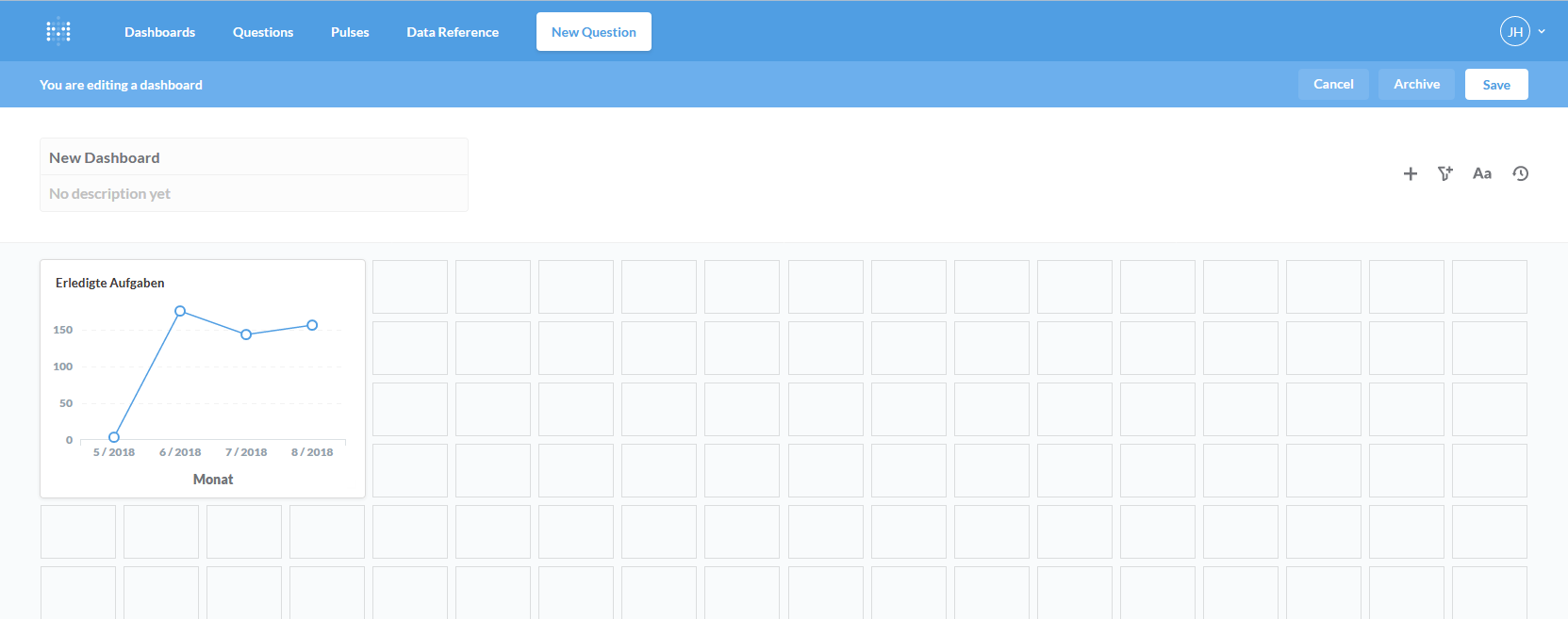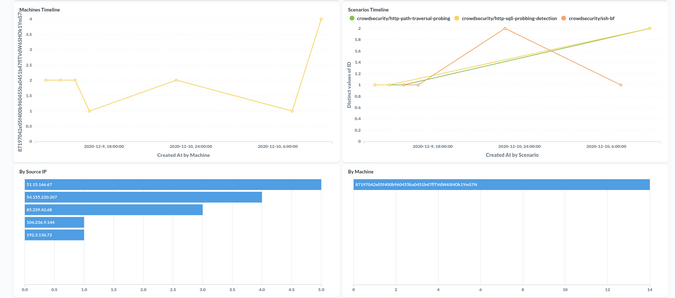

You could consult your individual database to get this metadata.
#METABASE DASHBOARDS HOW TO#
How to use indexes strategically? Find your most queried tables, and the most commonly queried columns in those tables. But just as it wouldn’t make sense to index everything in a book, indexes do incur some overhead, so they should be used strategically. Index frequently queried columnsĪdding indexes to your database can significantly improve query performance. That last section is about moving to a completely different type of database tuned specifically to handle analytics, and should be your last resort, especially for startups.

People will have the option to refresh the data, but typically this is unnecessary, as most often people will only need to review data from the previous day and before. If you have a set of dashboard that everyone runs when they open up their computers first thing in the morning, run that dashboard ahead of time, and the questions in that dashboard will use the saved results for subsequent runs to load in seconds. Admins can set up Metabase to cache query results, which will store answers to questions. You don’t need to wait for data if it’s already loaded. We should be open to all our data when we’re exploring our datasets, but once we settle on the kinds of decisions our organization needs to make-and the data we need to inform those decisions-we should be ruthless about excluding data that does not significantly improve our analysis. Be especially mindful of data spanning time and space: do you really need to look at the last quarter’s worth of data every day? Or do you really need every transaction for every country?Īnd even if you do need to know that information, do you need it every day? Could you relocate that question to another dashboard that’s typically only reviewed weekly or monthly? You can save a lot of time simply by restricting the data you query, such as by including adding a default filter on a dashboard. Do you actually need the data you’re querying? And even if you do need all that data, how often do you need it? This point is almost too obvious that it often goes overlooked, but it should be the first place to start. Only then should you be asking, “How do I get this dashboard to load faster?” Ask for less data Our advice assumes that you have been exploring your data for some time, and are deriving material benefits from the insight that data yields. The usual caveats about premature optimization being the root of all evil apply.

The bulk of this guidance will focus on that third bullet, or how you can organize data to anticipate the most common questions that data will be used to answer. What follows is some general guidance for how to get your dashboards to load faster. An example dashboard with three filter widgets that uses the Sample Database included with Metabase. Organize data to anticipate common questions.įig.When it comes to dashboard performance, there are essentially four ways to get dashboards to load faster: Consider a database optimized for analytics.Pull data out of JSON and slot its keys into columns.Aggregate data ahead of time with summary tables.Materialize views: create new tables to store query results.Organize data to anticipate common questions.


 0 kommentar(er)
0 kommentar(er)
